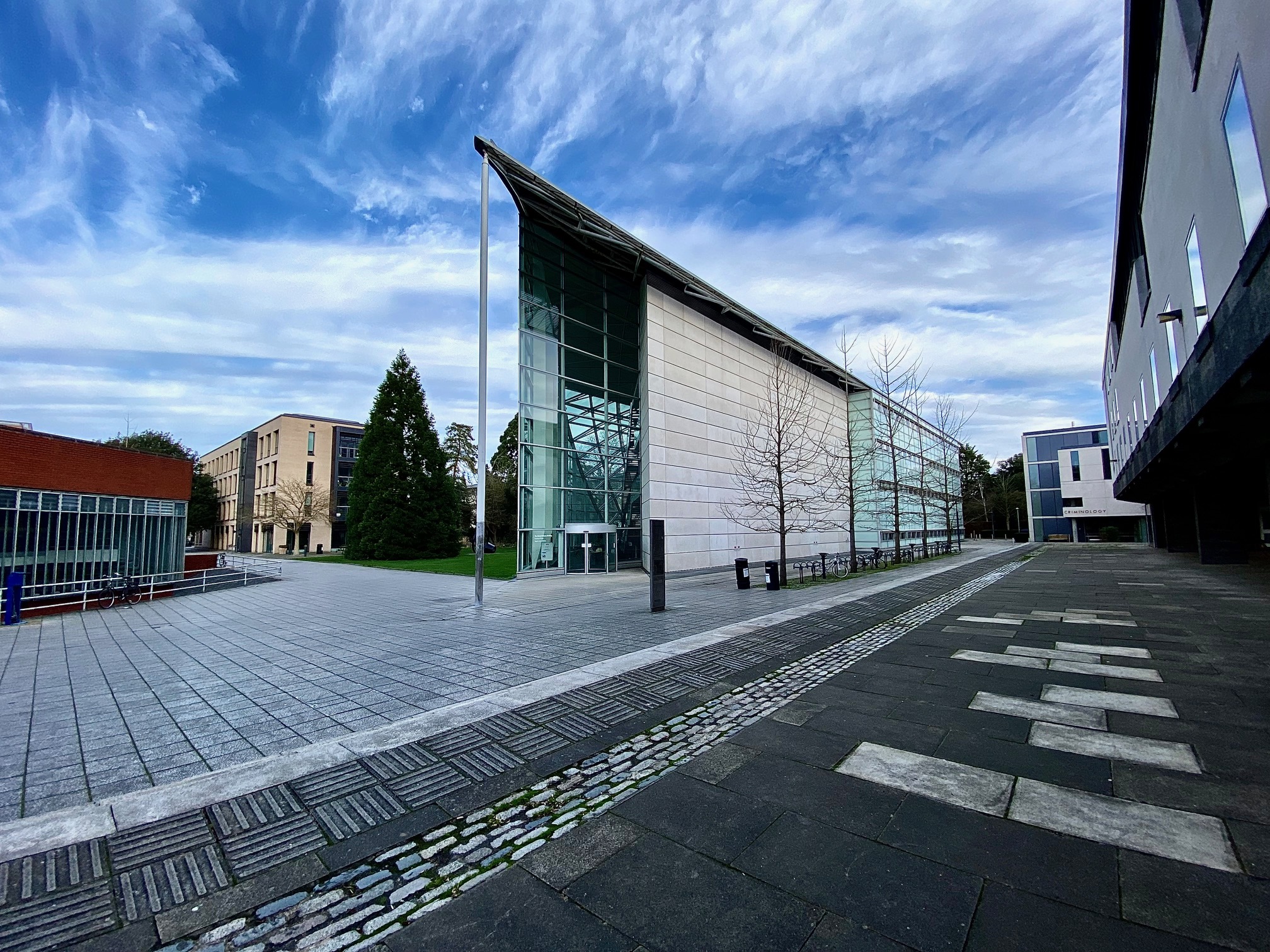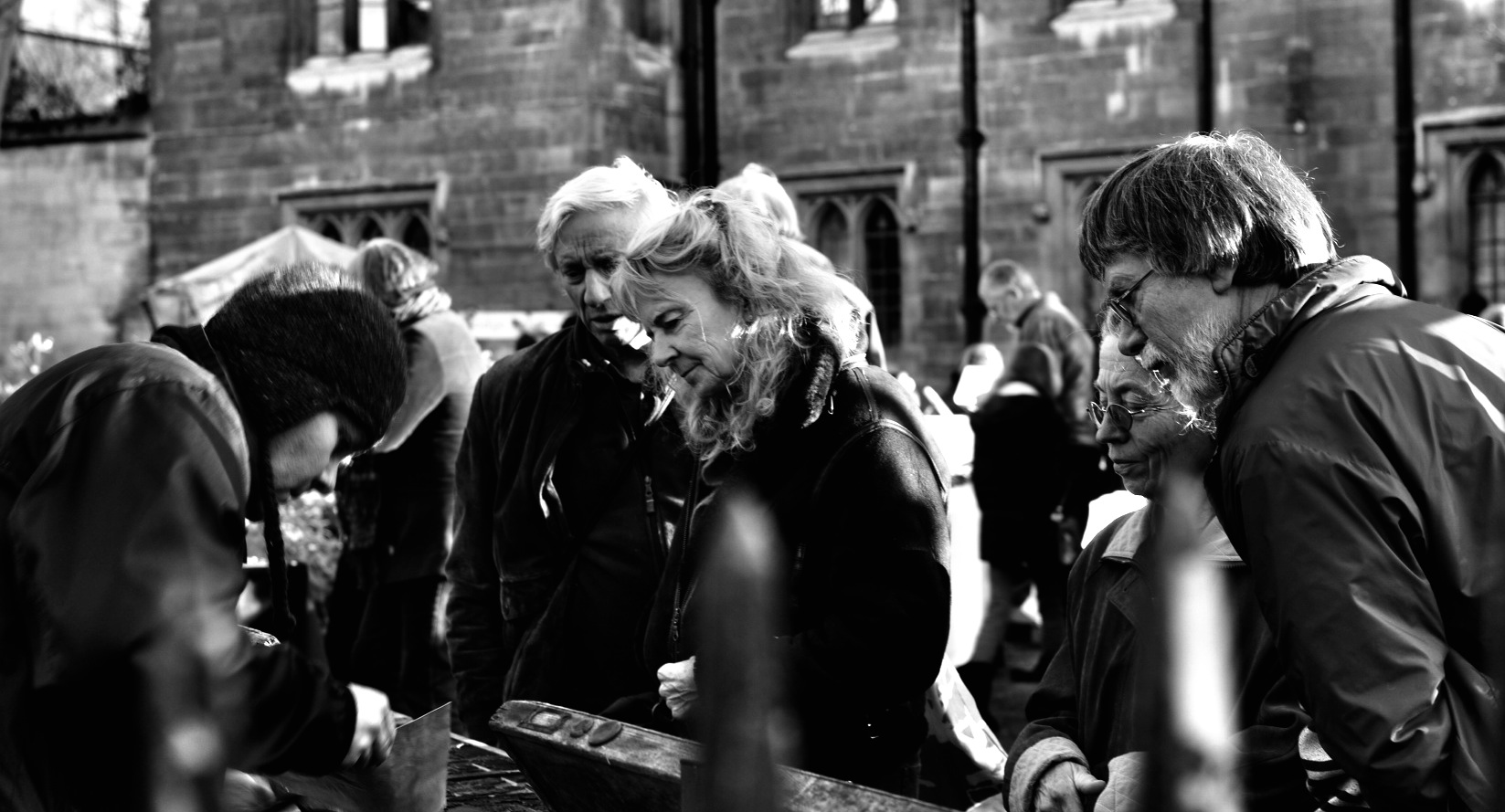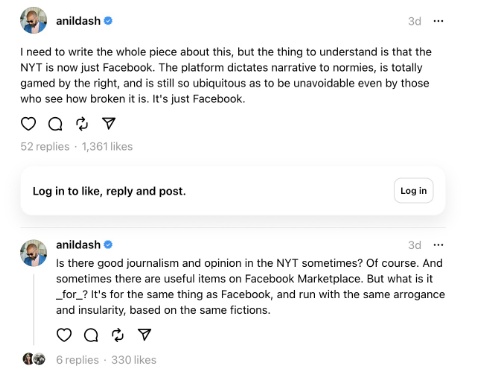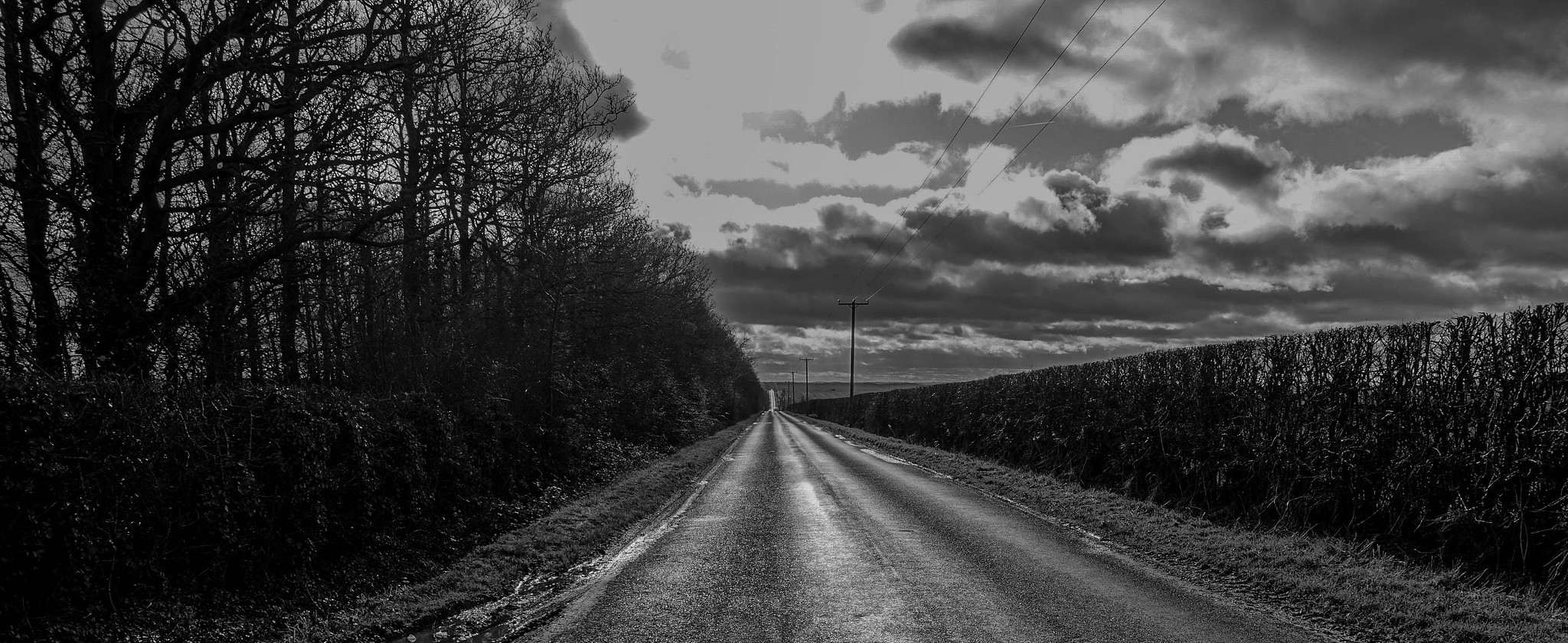Cambridge, late afternoon

St John’s College
Snapped on my way to a book launch in Heffers.
Quote of the Day
”It would be possible to say without exaggeration that the miners’ leaders were the stupidest men in England if we had not frequent occasion to meet the owners.”
- F.E. Smith
Musical alternative to the morning’s radio news
Martin Hayes and Cliodhna Ní Aodain | The Westerly Edge
On Monday night we went to Martin’s one-man show in Cambridge and came away mesmerised. He’s an astonishing musician. Who knew a little violin could express so much?
Long Read of the Day
Cory Doctorow’s McLuhan lecture on enshittification
On Monday night, in the Canadian Embassy in Berlin, Cory Doctorow (Whom God Preserve) gave the Annual Marshall McLuhan lecture at the Transmediale festival. His subject was enshittification, the term he coined for the life-cycle of tech platforms.
The transcript is long but worth your time. In a way, it’s the most succinct tour d’horizon of the dystopian empires that tech companies have built. And Cory never pulls punches.
For example:
Most of our global economy is dominated by five or fewer global companies. If smaller companies refuse to sell themselves to these cartels, the giants have free rein to flout competition law further, with ‘predatory pricing’ that keeps an independent rival from gaining a foothold.
When Diapers.com refused Amazon’s acquisition offer, Amazon lit $100m on fire, selling diapers way below cost for months, until diapers.com went bust, and Amazon bought them for pennies on the dollar, and shut them down.
Competition is a distant memory. As Tom Eastman says, the web has devolved into ‘five giant websites filled with screenshots of text from the other four,’ so these giant companies no longer fear losing our business.
Or:
Google and Facebook – who pretend they are called Alphabet and Meta – have been unscathed by European privacy law. That’s not because they don’t violate the GDPR (they do!). It’s because they pretend they are headquartered in Ireland, one of the EU’s most notorious corporate crime-havens.
And Ireland competes with the EU other crime havens – Malta, Luxembourg, Cyprus and sometimes the Netherlands – to see which country can offer the most hospitable environment for all sorts of crimes. Because the kind of company that can fly an Irish flag of convenience is mobile enough to change to a Maltese flag if the Irish start enforcing EU laws.
Which is how you get an Irish Data Protection Commission that processes fewer than 20 major cases per year, while Germany’s data commissioner handles more than 500 major cases, even though Ireland is nominal home to the most privacy-invasive companies on the continent.
You get the idea. He’s one of the smartest and most creative people I know. I kept wondering as I read the transcript what the sober citizens of Berlin were making of it. And whether there is now a German translation of enshittification.
My commonplace booklet
The UK National Grid Dashboard
We get our electricity from Octopus, because it seemed to be the most imaginative and efficient energy supplier in the UK.
Recently Octopus has been working with UK Power Networks on an imaginative flexibility service called Power-ups to help balance the local grid in East Anglia. The scheme funds free electricity for some areas where there’s regularly extra wind energy available.
It works like this:
- Power-ups are usually an hour or two long, at times when wind and solar make up a high percentage of the electricity mix (often in the middle of the day).
- Octopus emails us (usually the day before) and we opt in if want to participate at that time.
- When it’s time to Power up we can use as much electricity as we like and it’s free.
All of which means that I’ve started to take a healthy interest in how the Grid is dynamically balanced.
And why I find the National Grid Live dashboard fascinating. Maybe you will too.
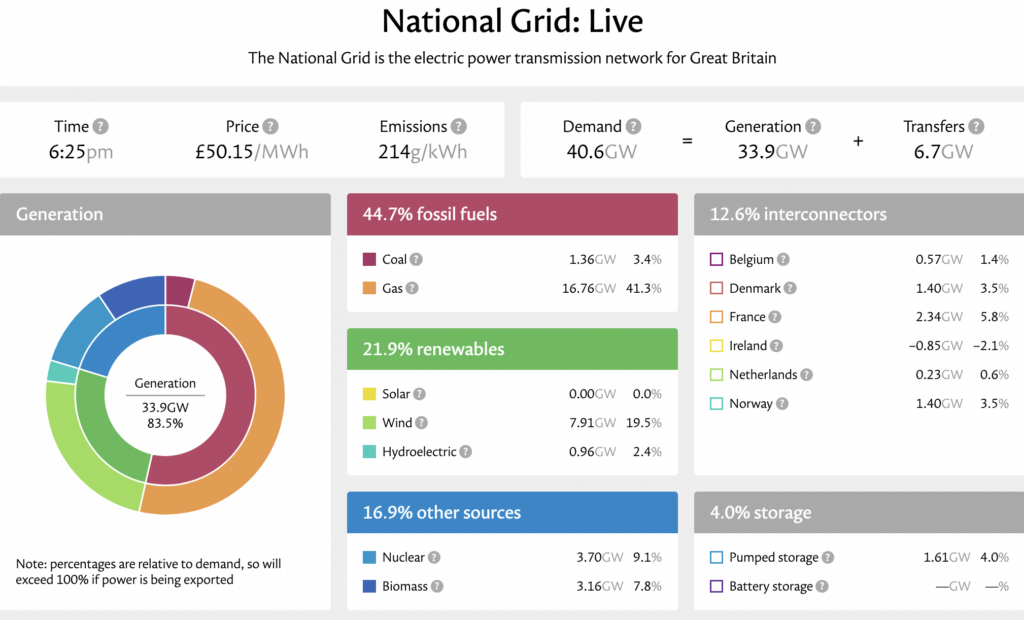
Linkblog
Something I noticed, while drinking from the Internet firehose.
- Two Donald Trump supporters die and go to heaven. God meets them at the Pearly Gates. “Tell us, “they say, “what were the real results of the 2020 election, and who was behind the fraud? “God answers: “My children, there was no fraud.” After a few seconds of stunned silence, one turns to the other, whispering: “this goes higher up than we thought. “
This Blog is also available as an email three days a week. If you think that might suit you better, why not subscribe? One email on Mondays, Wednesdays and Fridays delivered to your inbox at 6am UK time. It’s free, and you can always unsubscribe if you conclude your inbox is full enough already!



